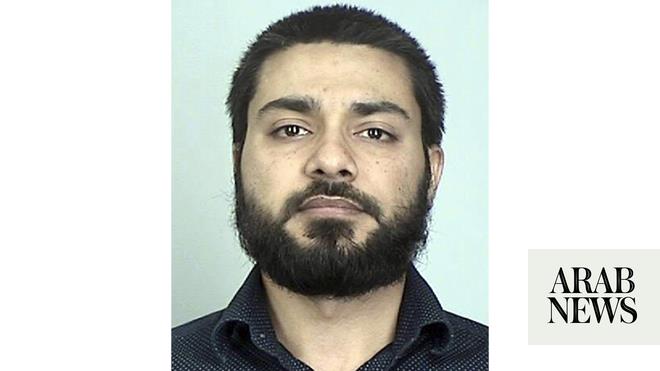
In the January 2016 attack in central Jakarta, Abdurrahman’s followers detonated a bomb in a cafe and fired gunshots at policemen
Prosecutors had sought the death sentence against the JAD leader after Abdurrahman pleaded not guilty to the charges
JAKARTA: An Indonesian court on Friday sentenced the leader of a Daesh-affiliated group to death for urging followers to carry out a series of terror attacks across the country, including the 2016 raid in central Jakarta that left eight people, including four extremists, dead.
On hearing the verdict, the cleric, Aman Abdurrahman, leader of Jamaah Anshorut Daulah (JAD), turned to face journalists and got down on his knees as if to express gratitude for the death penalty.
Armed police formed a barricade to shield Abdurrahman as he made the gesture.
The presiding judge, Akhmad Zaini, said that Abdurrahman played a significant role in the attacks by delivering online sermons that inspired his followers to carry out fatal assaults.
“The defendant did not have to directly order, but he could convey (his messages) through his commandos. He only needed to provide his grounds for his followers so they were convinced to execute his orders,” Zaini said.
Other attacks included twin suicide bombings at a bus station in East Jakarta, police shootings in Bima, West Nusa Tenggara, and the killing of a police officer in the North Sumatra police headquarters.
In the January 2016 attack in central Jakarta, Abdurrahman’s followers detonated a bomb in a cafe and fired gunshots at policemen.
“Abdurrahman has to take responsibility for his actions,” Zaini said.
Prosecutors had sought the death sentence against the JAD leader after Abdurrahman pleaded not guilty to the charges.
Police said that the militant group — declared a terrorist organization by the US State Department in January 2017 — was behind the suicide bombings carried out by two families on three churches and a police headquarters in Surabaya, the provincial capital of East Java, in May.
Abdurrahman’s lawyer, Asludin Hatjani, said he would ask his client whether to file for appeal.
The cleric was seen waving his hand to say “no” to his lawyer after judges asked if they would appeal the verdict.
Hatjani said: “He told me before the hearing that he has let it all go and doesn’t want to appeal.”












